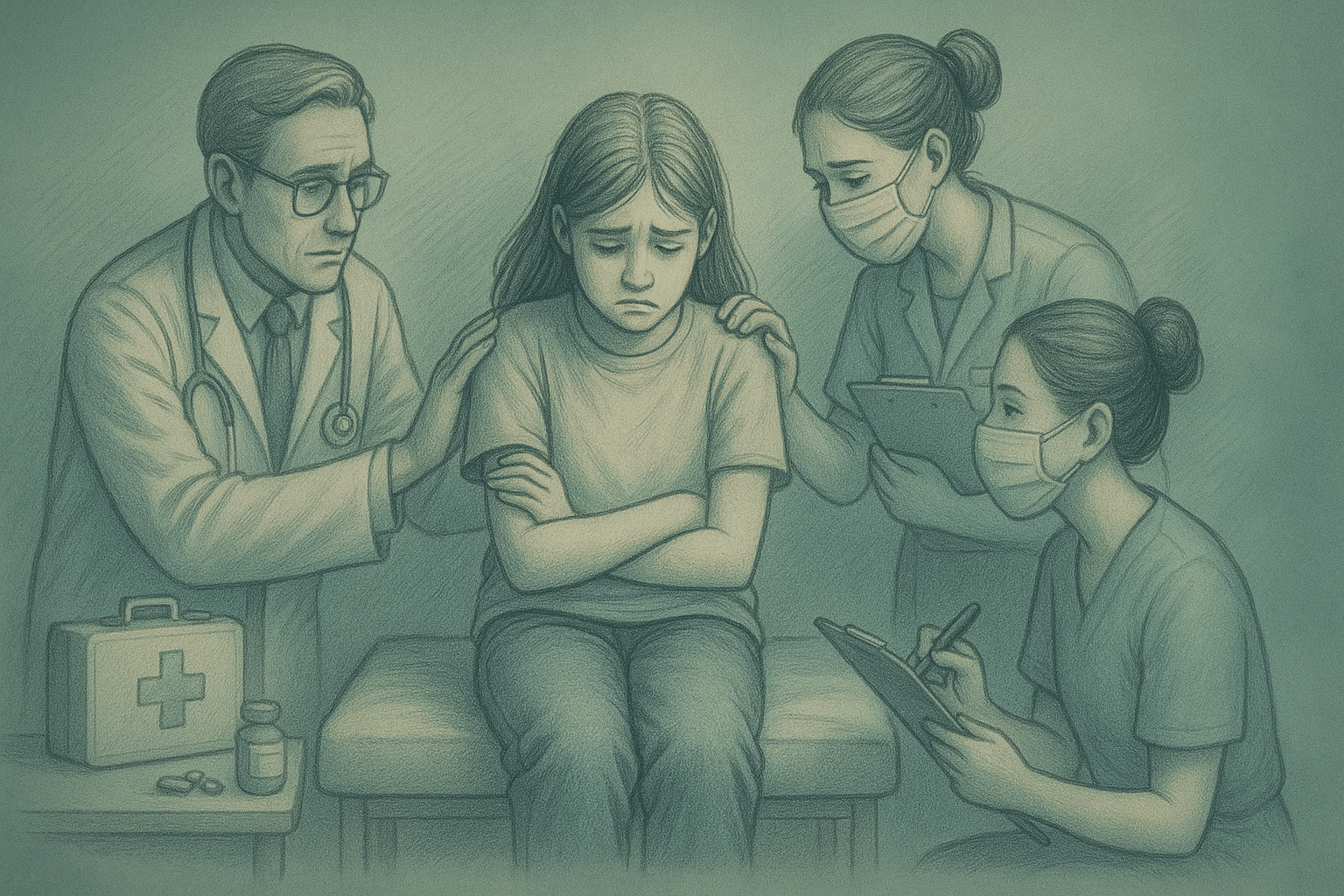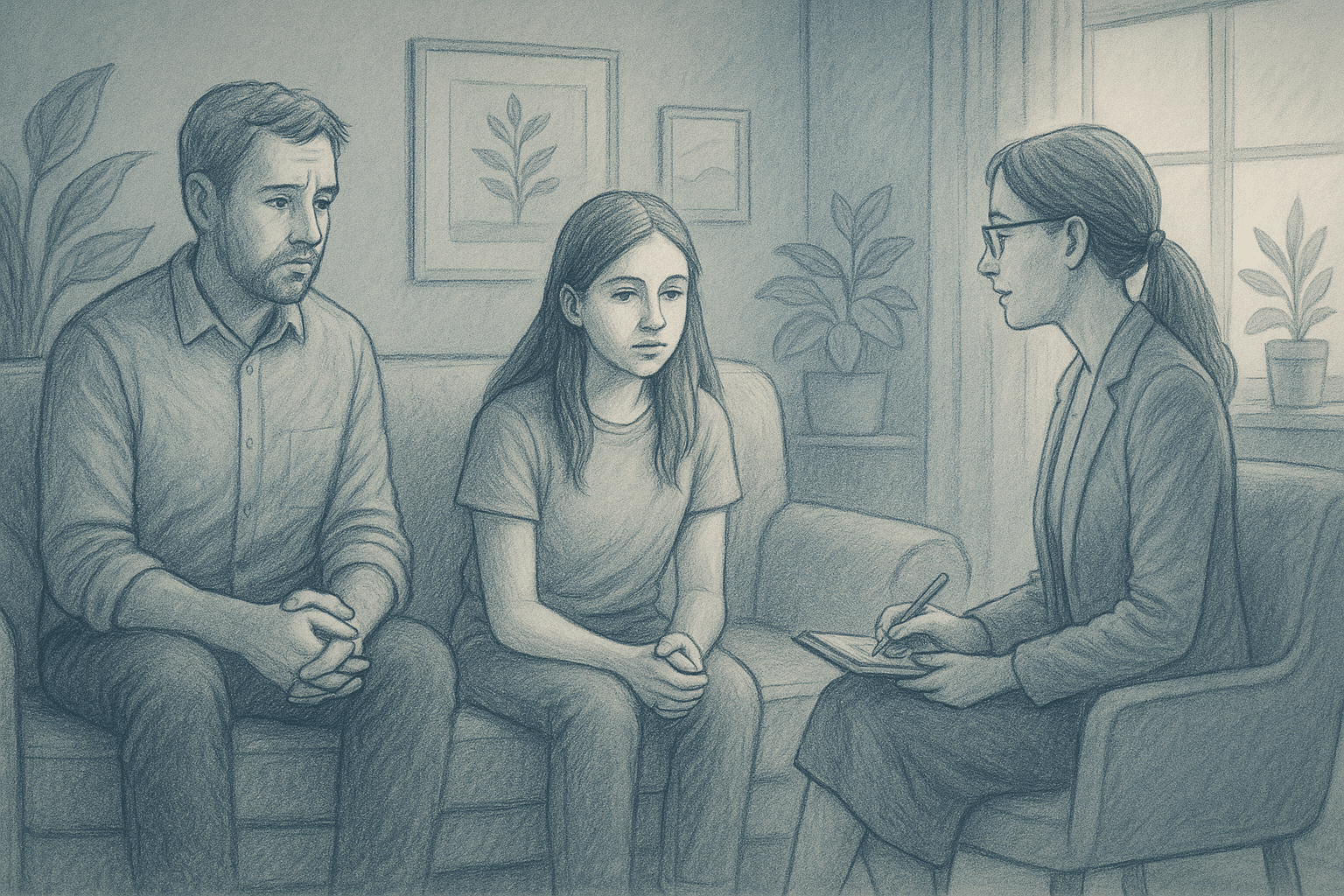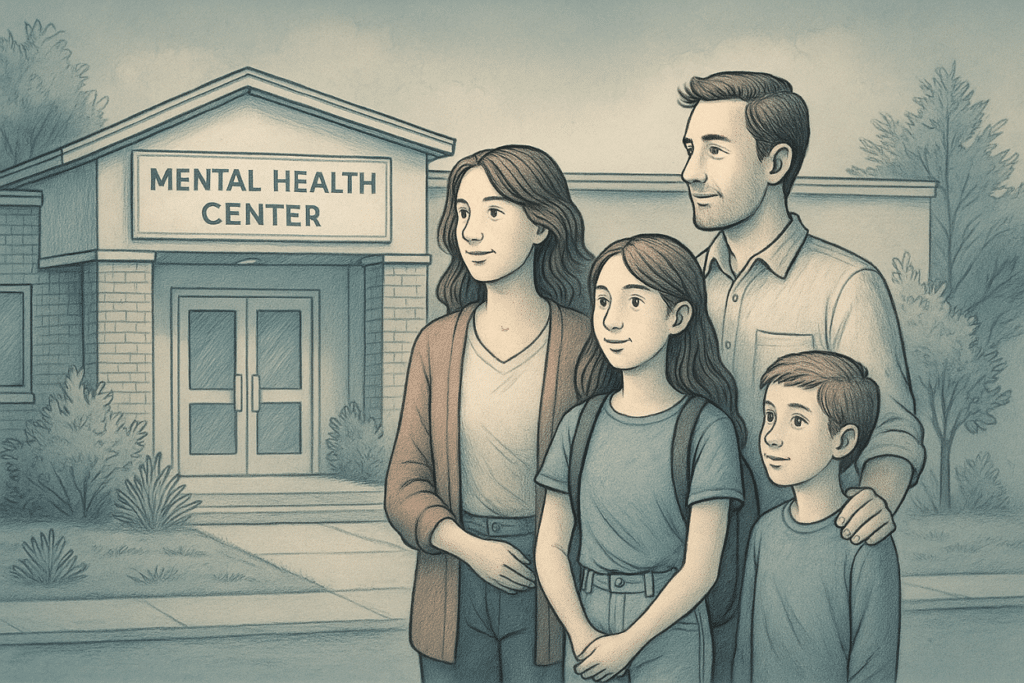Key Takeaways
- Teen mental health programs are crucial for providing the necessary support and care to adolescents facing mental health challenges.
- Inpatient programs offer intensive, 24/7 care and are best suited for severe mental health issues that require immediate intervention.
- Outpatient programs provide flexibility, allowing teens to maintain their daily routines while receiving treatment, ideal for less severe conditions.
- Choosing between inpatient and outpatient care depends on the severity of the condition, the level of support needed, and the family’s circumstances.
- Mission Prep offers comprehensive adolescent mental health treatment for ages 12–17, through residential, outpatient, and telehealth options to address a wide range of mental health challenges.
Introduction to Teen Mental Health Programs
The world of teen mental health can be overwhelming. With the rise in awareness about mental health issues, it’s more important than ever to understand the options available for support.
Teen mental health programs play a critical role in helping teens manage their mental health challenges, offering a structured environment where they can learn
Program Options
- Inpatient Programs: Provide round-the-clock care in a controlled environment.
- Outpatient Programs: Offer treatment sessions while allowing teens to continue with their daily activities.
- Therapeutic Boarding Schools: Combine education with mental health treatment.
- Day Treatment Programs: Intensive programs that don’t require overnight stays.
- Community-Based Programs: Focus on integrating treatment within the community setting.
Importance for Teens
Adolescence is a critical developmental period, marked by significant physical, emotional, and psychological changes. During this time, teens are particularly vulnerable to mental health issues, which can have long-lasting effects if not addressed promptly.
Engaging in a mental health program can provide teens with the support they need to manage these challenges. These programs focus on treating mental health conditions and empower teens with the skills necessary to lead healthy, balanced lives.
Mission Prep Healthcare specializes in mental health treatment for teens aged 12-17, offering residential and outpatient programs for anxiety, depression, trauma, and mood disorders. Our therapies include CBT, DBT, EMDR, and TMS, tailored to each adolescent’s needs.
With a structured, supportive environment, we integrate academic support and family involvement to promote lasting recovery. Our goal is to help teens build resilience and regain confidence in their future.
Inpatient Programs Overview
Inpatient programs are designed for teens who require intensive care and supervision. These programs provide a safe and structured environment where teens can receive round-the-clock support from mental health professionals.
This level of care is typically recommended for severe mental health issues, such as acute depression, anxiety disorders, or when there is a risk of harm to oneself or others.
Intensive Care Explanation
The primary goal of inpatient programs is to stabilize the teen’s mental health condition and provide immediate intervention. During their stay, teens participate in a variety of therapeutic activities, including individual therapy, group sessions, and family counseling, to ensure that all aspects of the teen’s mental health are addressed.
Inpatient care also involves medication management, if necessary, and close monitoring of the teen’s progress. This way, teens focus solely on their recovery without the distractions and stresses of daily life.
Benefits of Inpatient Care
The benefits of inpatient care are numerous—most significantly, the constant access to professional support.

The 24/7 care of inpatient programs ensures that any crisis can be managed promptly, reducing the risk of escalation.
Inpatient programs also provide a break from potentially harmful environments, allowing teens to focus on healing in a safe and supportive setting. The intensive nature of these programs often leads to quicker stabilization and improvement in mental health symptoms.
Drawbacks to Consider
The highly structured environment can feel restrictive for some teens, and being away from home and familiar surroundings can be challenging. Plus, the cost of inpatient care can be significant, and not all families have access to insurance coverage that fully supports this level of treatment.
Also, the transition back to daily life after discharge can be difficult. It requires careful planning and ongoing support to ensure that the progress made during inpatient treatment is maintained.
Intro To Outpatient Programs
Outpatient programs are treatment options designed for individuals who do not require 24-hour supervision but still need support for their recovery. Teens can attend therapy sessions during the day or in the evening and attend other activities while living at home or in a supportive environment.
Program Flexibility

Outpatient programs offer a level of flexibility that inpatient programs simply cannot.
Outpatient programs allow teens to continue attending school, participating in extracurricular activities, and maintaining social connections, which can be particularly beneficial for teens who thrive in familiar environments and have a supportive home life.
Outpatient care is designed to integrate seamlessly into a teen’s daily routine. Treatment sessions are scheduled around other commitments, so teens can receive the support they need without significant disruption to their lives.
Pros of Outpatient Care
Aside from flexibility, outpatient care lets teens apply what they learn in therapy to real-world situations. This can improve the effectiveness of treatment, as teens can practice coping strategies and problem-solving skills in their everyday lives.
Outpatient programs also tend to be more cost-effective than inpatient care, so they’re more accessible to a wider range of families.
Another benefit is the involvement of family members in the treatment process. Outpatient programs often include family therapy sessions, which can strengthen family dynamics and improve communication.
Cons of Outpatient Treatment
One potential drawback of outpatient therapy is the limited supervision compared to inpatient programs. Teens may not receive the same level of immediate support in a crisis, which can be a concern for those with severe mental health issues.
Also, the success of outpatient treatment largely depends on the teen’s home environment; a lack of support or exposure to negative influences can hinder progress. It’s essential for families to provide a stable and nurturing environment to maximize the benefits of outpatient care.
Comparative Analysis
Effectiveness Evaluation
The effectiveness of a mental health program is often measured by the progress a teen makes during and after treatment. Inpatient programs typically yield faster results due to their intensive nature and constant professional oversight.
However, outpatient programs can be equally effective for teens with less severe issues or those who benefit from applying therapeutic techniques in real-life scenarios.
Cost Comparison
Cost is a significant factor for many families when choosing a mental health program. Inpatient care is generally more expensive due to the comprehensive services and 24/7 supervision it provides.
Outpatient programs are more affordable, and therefore a more feasible option for families with limited financial resources or those without extensive insurance coverage.
Accessibility and Support
Inpatient programs are located in specialized facilities and require extended stays away from home, which can pose logistical challenges for families, particularly those in rural areas.
Outpatient programs, on the other hand, are more widely available and can be accessed within the community.
Mission Prep Offers Comprehensive Teen Mental Health Care

Mission Prep facility for teen mental health treatment.
At Mission Prep, we understand the critical decision parents face when choosing between inpatient and outpatient mental health programs for their teens. Our approach bridges this spectrum by offering comprehensive care customized to your teen’s specific needs.
We conduct thorough assessments to determine the most appropriate level of care, whether that’s our structured residential program or our flexible outpatient services.
What makes Mission Prep different is our commitment to creating personalized treatment plans in our treatment facilities in California and Virginia, that evolve as your teen progresses. Our experienced team specializes exclusively in adolescent mental health, with evidence-based approaches that address not just symptoms but underlying causes.
We recognize that effective treatment extends beyond the teen to include the entire family system. That’s why we incorporate family involvement at every level of care, providing the tools and support needed for lasting change.
Choose Mission Prep for a treatment experience where your teen’s unique needs drive the care plan, delivered by specialists who understand the complexities of adolescent mental health in a supportive, healing environment.
Frequently Asked Questions (FAQ)
What is the difference between inpatient and outpatient care?
Inpatient care involves a residential stay in a mental health facility where teens receive 24/7 supervision and support. This type of care is intensive and typically used for severe mental health conditions. Outpatient care, on the other hand, allows teens to live at home while attending scheduled therapy sessions. It provides flexibility and is suitable for less severe issues.
When should a teen consider inpatient treatment?
Inpatient treatment is recommended for teens experiencing severe mental health issues that pose a risk to themselves or others. It is also appropriate when outpatient care has not been effective, or when a teen requires a structured environment to focus on recovery without outside distractions.
Are outpatient programs effective for severe issues?
Outpatient programs can be effective for severe issues if there is a strong support system at home and the teen is motivated to engage in treatment. However, they may not provide the immediate, intensive intervention needed for acute crises. In such cases, inpatient care may be more appropriate.
What factors should influence program choice?
Several factors should influence the choice between inpatient and outpatient programs. These include the severity and type of mental health condition, the teen’s personal preferences, the availability of family support, financial considerations, and the proximity and accessibility of the program.
How involved are parents in teen mental health treatment?
Family involvement is a crucial component of effective teen mental health treatment. In both inpatient and outpatient settings, parents typically participate in family therapy sessions, receive education about their teen’s condition, and learn supportive strategies to implement at home. The level of involvement may vary based on the program and individual needs.
At Mission Prep, we consider parents essential partners in the treatment process, providing opportunities for meaningful participation while respecting appropriate boundaries and the therapeutic relationship.















